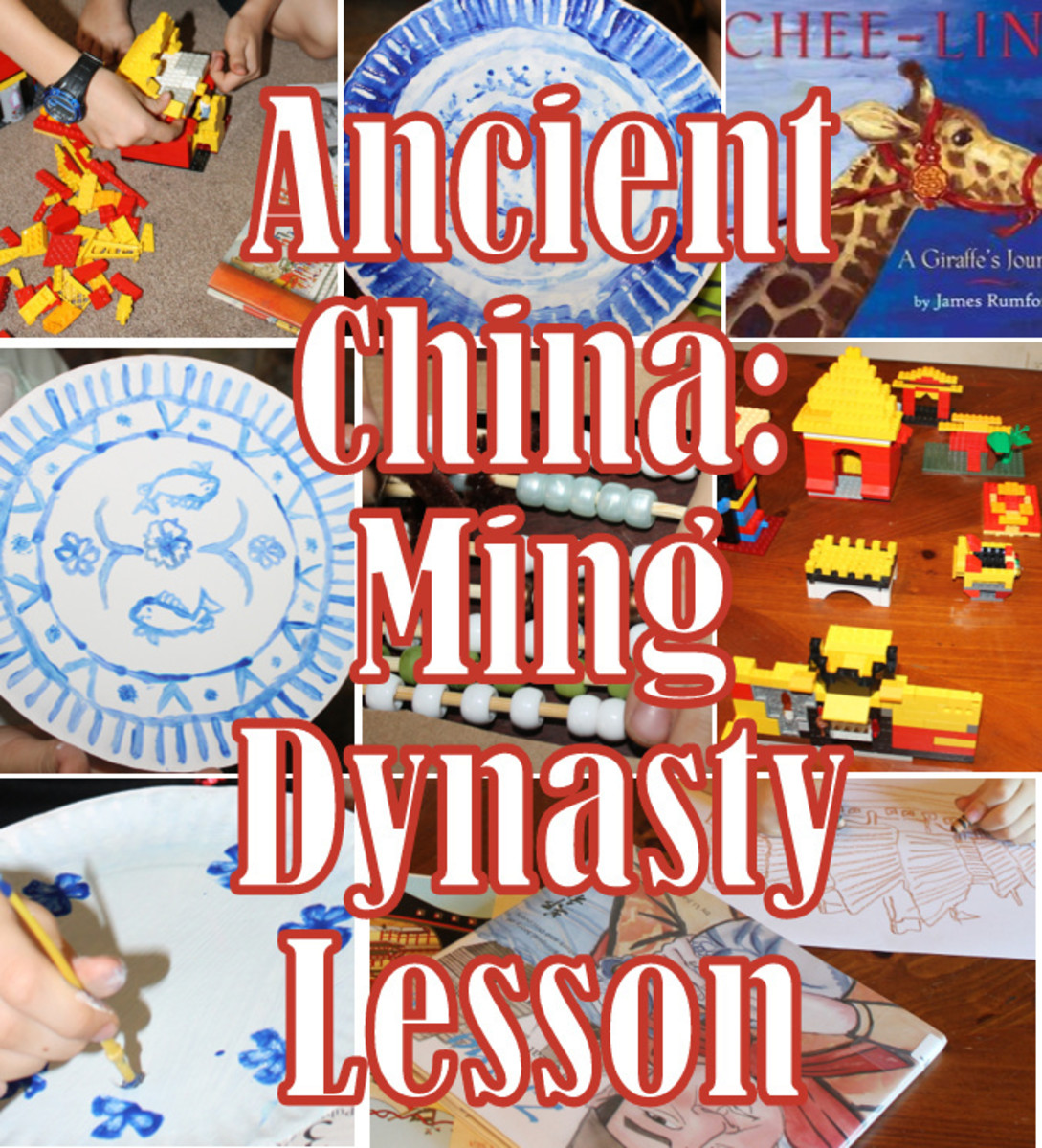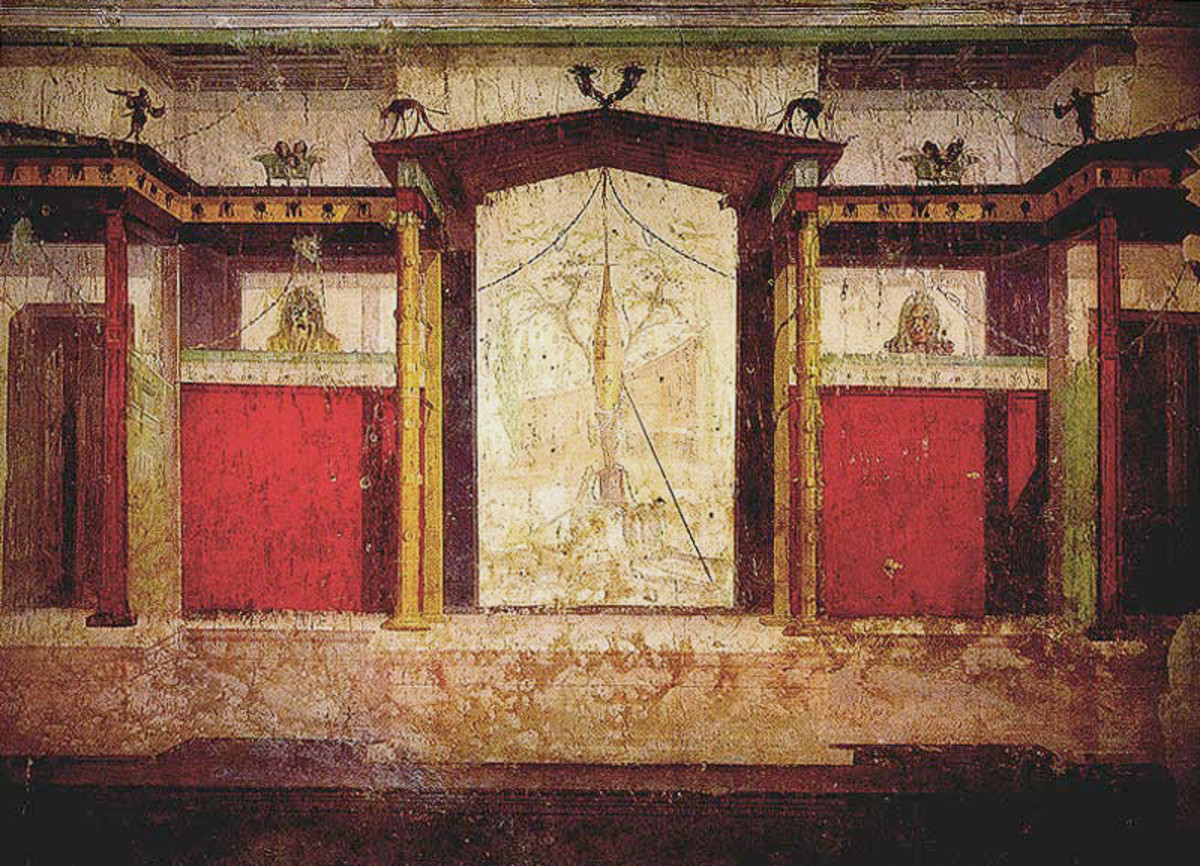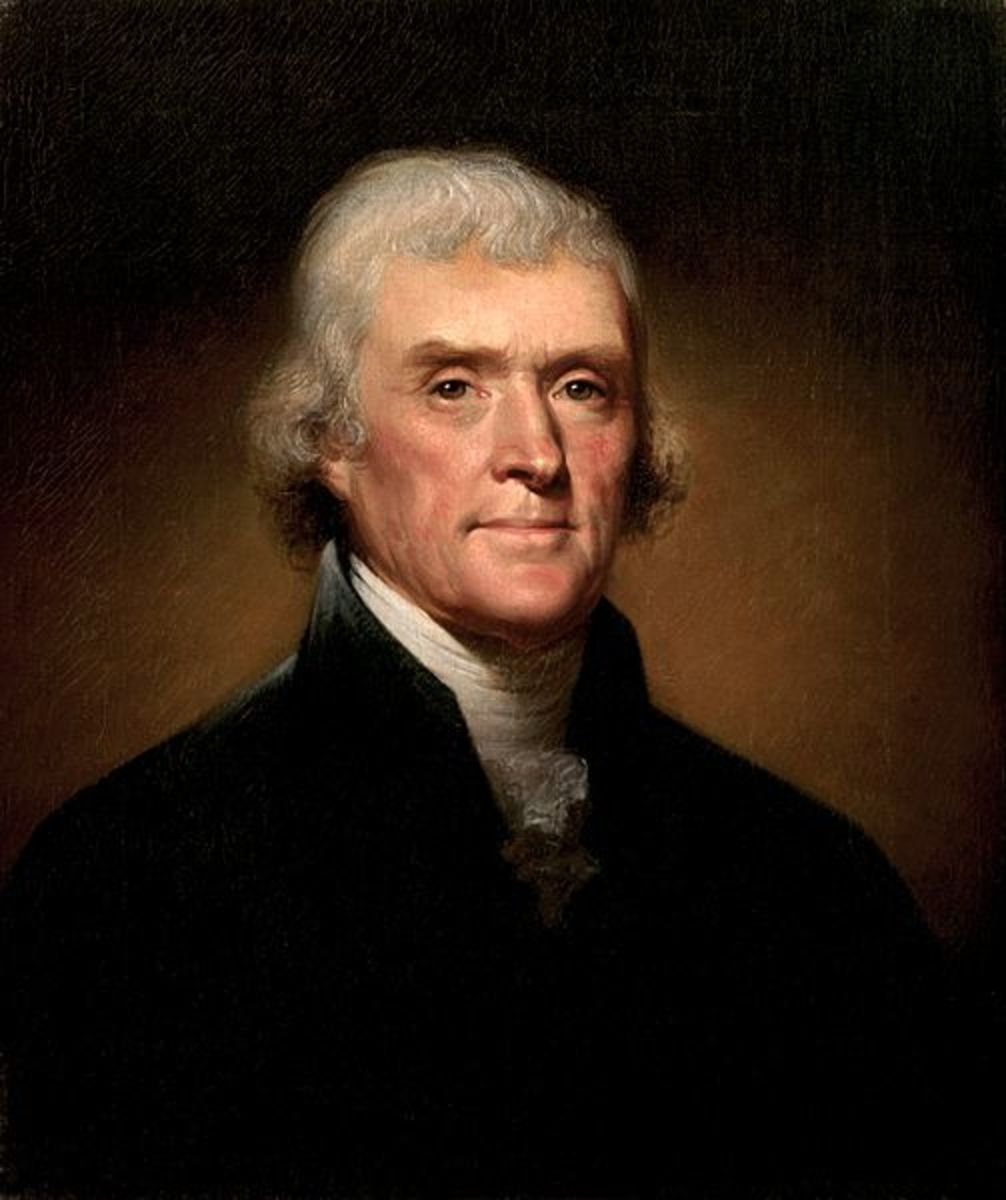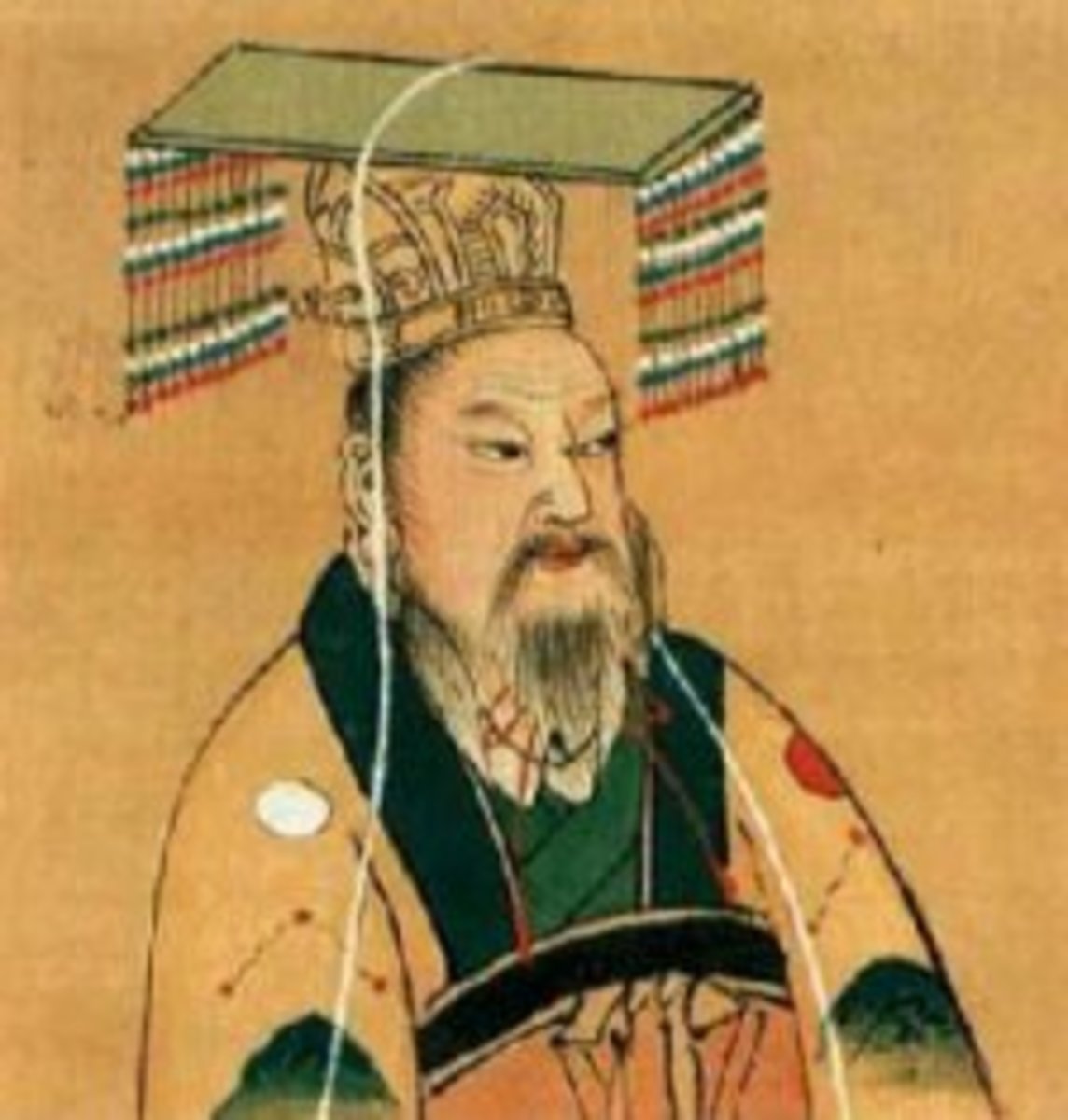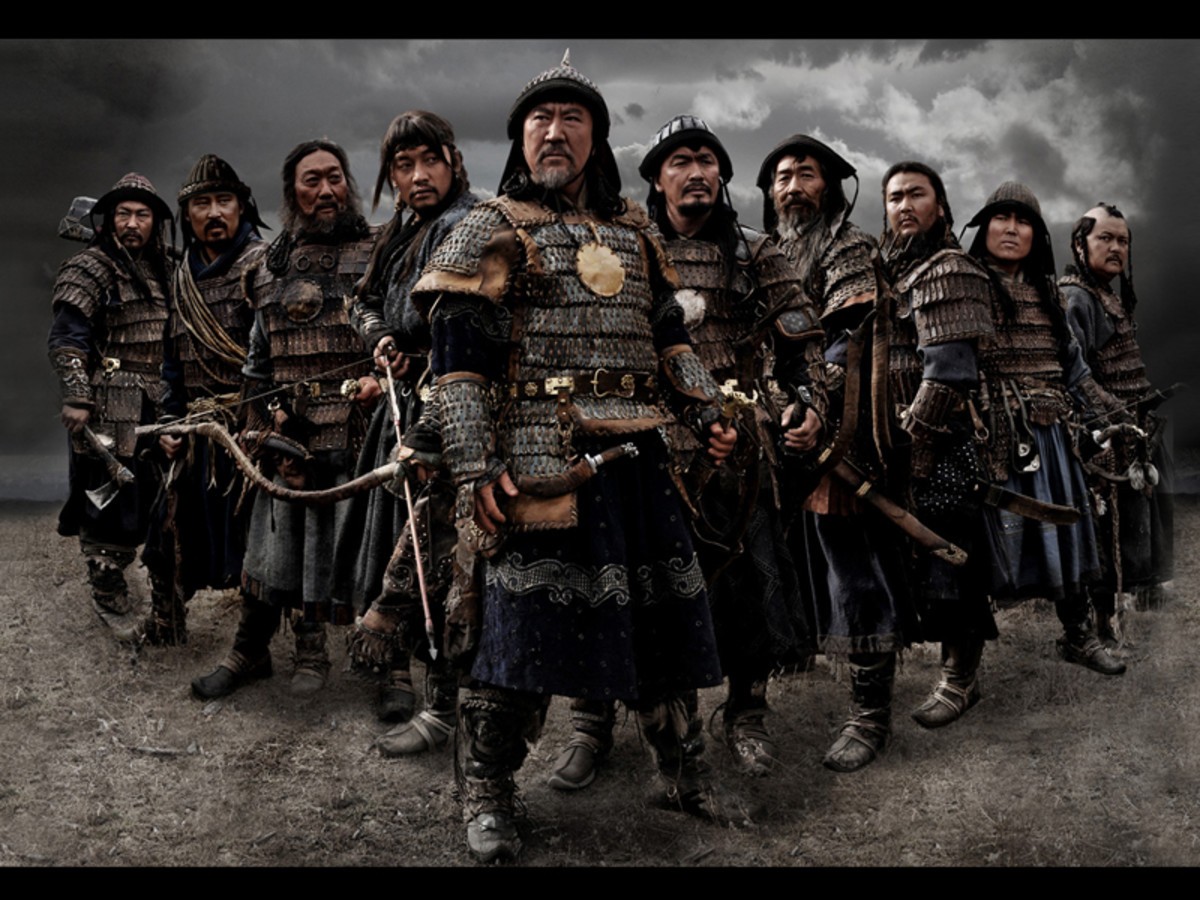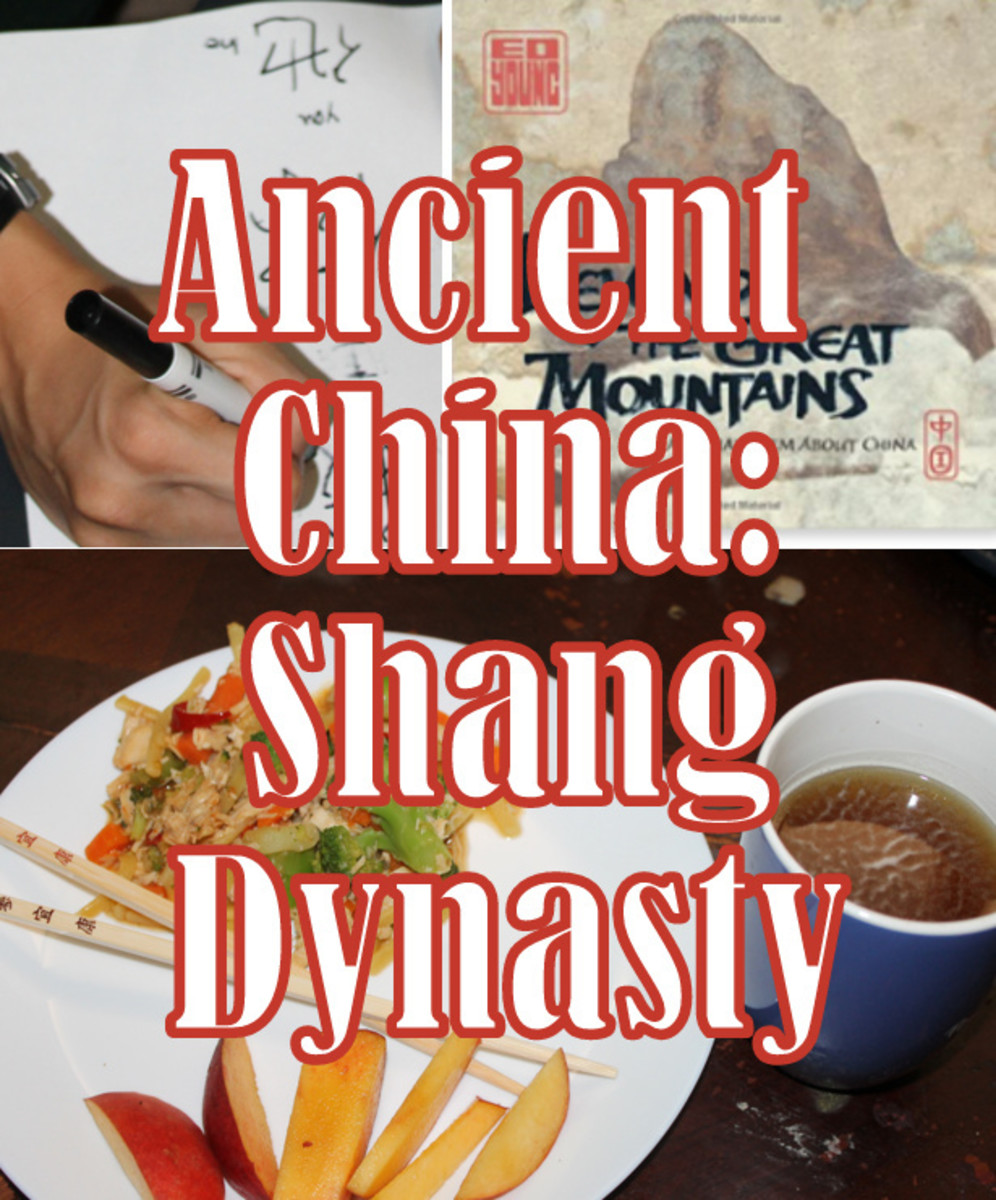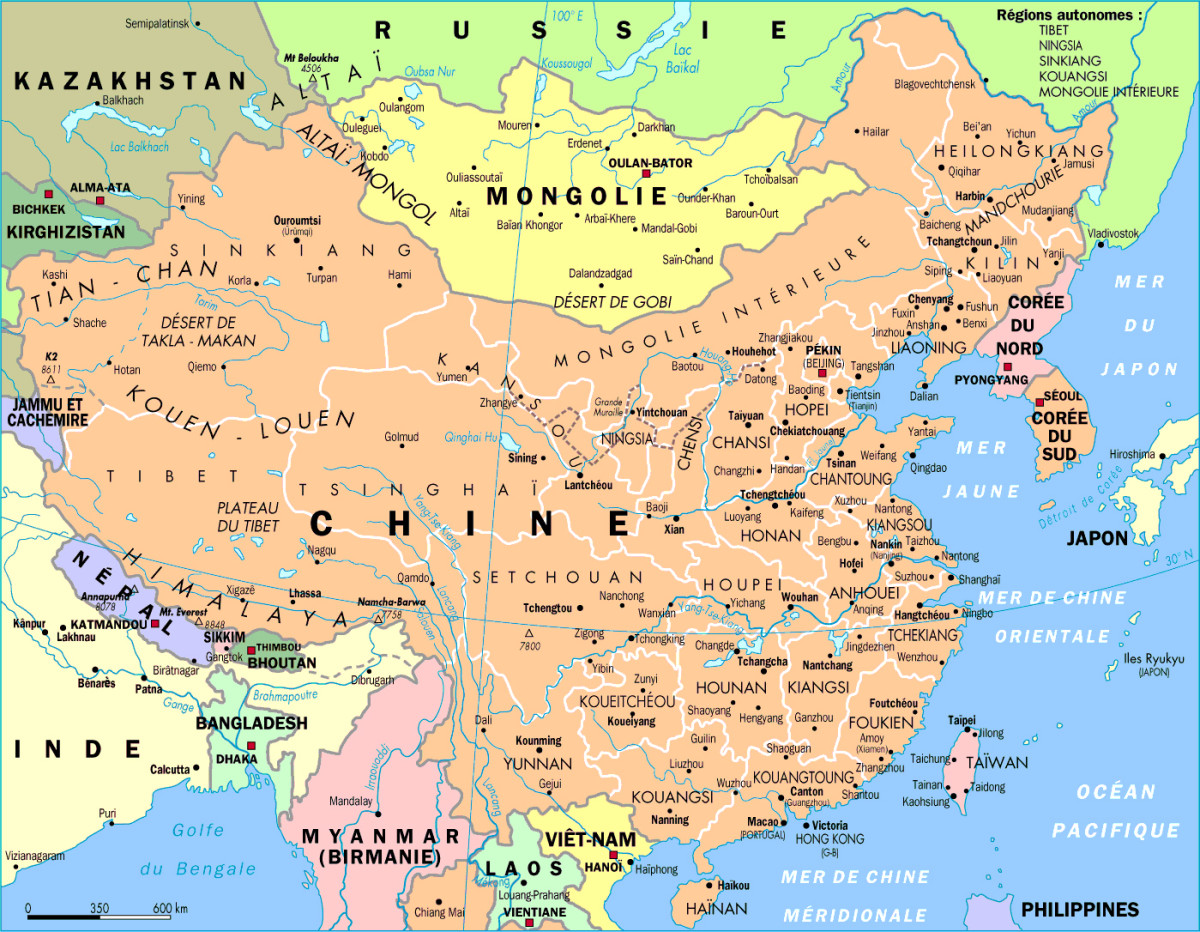- HubPages»
- Education and Science»
- History & Archaeology»
- History of Asia
Dragon Lady: Empress Tz'u-hsi
Imperial Dowager Cixi (Tz'u-hsi)
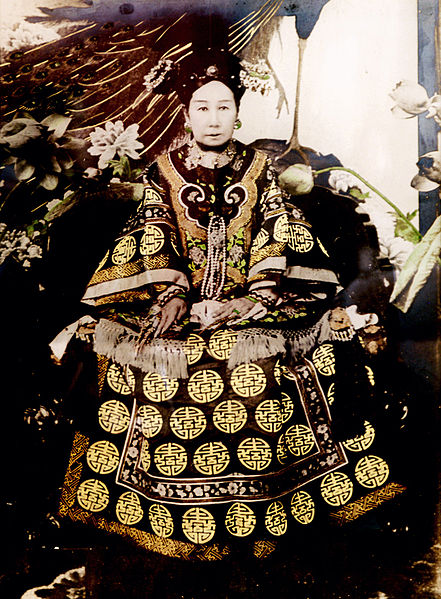
The True Power Behind the Throne--Literally
A woman in nineteenth century China often didn’t have much to look forward to in her life. There were the few occasions for education and travel, but those were reserved for the lucky few. Most others, like Yehonala, could only hope to marry a stranger who would be at least somewhat kind and then give birth to many sons.
Born in 1835, Yehonala was the eldest daughter of a low ranking official of the Imperial Court, still under the control of the Manchu dynasty. Yehonala later recounted that it was difficult at home, that she had to compete for everything with her siblings. Things began to turn worse when her father suddenly passed away, leaving the family with no income. Desperate to escape her situation, Yehonala found a way out; a marriage proposal from Ronglu, a young garrison commander for the emperor’s troops. She could marry him and then her life would be secure.
But, before Yehonala could act, an even better offer was presented, this time to all the maidens of China: Emperor Xianfeng was seeking new concubines.
Knowing a great idea when she saw it, Yehonala rejected Ronglu’s offer and quickly applied to become a concubine, where her only real duty was to have sex with the emperor and provide him with sons. In time she was presented to the emperor’s mother, the dowager empress Kangci, who carefully critiqued Yehonala on her physical appearance, her charms and demureness. Ultimately, the dowager empress was most impressed with Yehonala and chose her to be one of the new concubines, renaming her Tz’u-hsi, or, “Kindly and Virtuous.” If she only knew.
At sixteen years old, Tz’u-hsi entered the Forbidden City—the massive walled palace home to the emperor—and immediately began her concubine training. For two years she learned how to behave, how to respond when addressed by the emperor … mostly she just learned ways to keep the emperor satisfied in bed. Tz’u-hsi mastered all the skills quickly, becoming so well liked by Emperor Xianfeng that she rose quickly through the ranks of concubines. Every time her turn came up to sleep with the emperor, the royal eunuchs would strip her naked to be sure that she wasn’t hiding any weapons and then carry her to the emperor’s bed.
Finally, Tz’u-hsi became pregnant and on April 27, 1856, she gave birth to a long-sought for boy, Prince T’ung-chih. The emperor was elated, and overnight Tz’u-hsi became his favorite concubine, held second only to his wife (and Tz’u-hsi’s cousin), the Empress Tz’uan. Tz’u-hsi’s new position frequently placed her at the emperor’s court, and she quickly began to learn the mechanics of imperial rule. She became highly skilled in power-play, manipulation and negotiations, and Emperor Xianfeng often conferred on her for her opinion regarding legal matters. Perhaps this is where Tz’u-hsi realized that it was much more fulfilling to spend the rest of one’s life seated on a throne as opposed to be regularly on your back.
But of course, imperial law forbade that women should rule China … well, if Tz’u-hsi couldn’t sit on the throne, then she was going to make damned sure that her son became emperor instead.
That chance came suddenly—and was almost ripped away just as quickly; in 1861, Emperor Xianfeng became desperately sick. Tz’u-hsi was confident that their son T’ung-chih would be made emperor, but a group of nobles and imperial advisors, called the Gang of Eight, claimed that the throne now belonged to them. Outraged, Tz’u-hsi stormed into the dying emperor’s bedchamber and demanded that he issue a decree stating that his son was the rightful emperor. Unable to do much else, Emperor Xianfeng stated to a group of witnesses that he recognized T’ung-chih as his son and heir, and that his mother Tz’u-hsi would be recognized as the empress dowager and would assist in T’ung-chih’s rule alongside Empress Tz’uan.
Even with the imperial decree, the Gang of Eight scoffed at the dying emperor and his small son, refusing to give up control of the throne. Working quickly, Tz’u-hsi gained the assistance of both the senior emperor’s brother Prince Gong and her former fiancé Ronglu, now commander of the garrisons at the Forbidden City, and together the three staged a coup. The Gang of Eight was rapidly overtaken and executed, and little five-year-old T’ung-chih was made emperor.
At first, Tz’u-hsi seemed content to share power with Empress Tz’uan, and both knelt side by side behind a silk or bamboo screen behind the new emperor’s throne, dictating orders to the little boy who would then parrot them back to his subjects. Since Tz’uan didn’t care for politics, she withdrew from the court, leaving Tz’u-hsi to continue ruling through her son. Tz’u-hsi thoroughly enjoyed calling the shots.
In 1873, T’ung-chih came of age to rule in his own right, and to say that Tz’u-hsi was reluctant to give up her power would be an understatement. She was already angry that he had married a strong-willed Mongolian woman named Xiaozheyi, and she worried that Xiaozheyi would dominate him (kind of funny when you think about it). To keep him distracted, Tz’u-hsi regularly flung concubines at T’ung-chih. T’ung-chih continued to be an issue for Tz’u-hsi until he suddenly became sick and died at the age of 19, his wife dying from an opium overdose soon after. During this terrible tragedy, Tz’u-hsi discovered that T’ung-chih’s favorite concubine was pregnant—and then she died suddenly as well. And so, with a heavy heart and likely a large number of poison bottles hidden away somewhere, Tz’u-hsi immediately named her three year old nephew Guangxu as emperor in 1875.
Things were going well with the new emperor, but when Tz’u-hsi became ill in 1880 and Tz’uan took over, the empress did very well without her and Tz’u-hsi resented it. She became more aggressive to Tz’uan, suspecting her of treachery. In response, Tz’uan finally showed Tz’u-hsi a document that had been signed by the Emperor Xianfeng, stating that if Tz’u-hsi ever meddled too much in politics then she was to be summarily executed.
Seeing the document, Tz’u-hsi was horrified, but Empress Tz’uan told her that she had held on to the document to protect Tz’u-hsi from the court—that should prove her loyalty. Tz’u-hsi wasn’t convinced, but she didn’t have to worry long; in 1881, Empress Tz’uan choked to death on some milk cakes—that had been kindly sent to her by Tz’u-hsi.
Now in charge, Tz’u-hsi quickly took over every aspect of the court and hired a tutor to learn how to properly read and write. She issued many decrees and laws, probably the most notable among them being the outlawing of foot binding, the horrific practice of making a girl’s feet smaller by breaking the bones and wrapping the feet tightly. She expected total obedience regarding her laws and when provoked her rage was legendary and violent—just one of the reasons why she was called “The Dragon Lady.”
At the same time, Tz’u-hsi reveled in the perks of being an empress—sometimes to excess. Since she liked phoenixes, she replaced the imperial dragons with phoenixes on all of her clothing, and it was said that she would change clothes and jewelry several times a day—and that she had over three thousand jewelry boxes to choose her baubles from. She loved her little Peking dogs, going so far as to build a palace for them, but despised cats so much that she forbade any of her 3000 servants to own one. She loved clocks and wind-up toys, and loved the number six so much that all the furniture in her palaces had to be made in sixes (six chairs, six beds, etc.). An avid fan of England’s Queen Victoria, Tz’u-hsi kept a picture of the western queen by her bed, and would stare at it on nights when her insomnia wouldn’t let her rest. When the palace she wanted to build exceeded the imperial budget, it was alleged that Tz’u-hsi siphoned off some money from the military’s budget, which turned into a costly mistake at the end.
In 1889, her nephew Guangxu came of age and demanded to rule as emperor by himself. Tz’u-hsi refused to release her death grip on the throne, and she was beside herself with rage when the emperor had her physically removed and placed in the Summer Palace.
Unlike Tz’u-hsi, Guangxu was a very progressive leader; he was interested in Western ideas and technology. He began building railroads, modernized the military and overhauled the legal system, and all of his hard work was driving the trapped Tz’u-hsi berserk. She just couldn’t see anything positive coming out of Westernizing China, and she was certain that all of these “improvements” and all of this technology would weaken the people of China, make them more dependent on goods and items, and ultimately cause the cultural structure of the country to collapse. She truly thought her nephew was a fool, and when the Japanese attacked the unprepared Chinese army, forcing the emperor to surrender Taiwan and Korea, Tz’u-hsi was even more convinced that her nephew couldn’t rule.
At some point, Ronglu discovered that Guangxu was planning on throwing Tz’u-hsi in jail, and he rushed to inform the empress. With her support, Ronglu staged a coup in September 1898, unleashing his army on the Forbidden City. Her folded fan in hand, Tz’u-hsi marched through the gates up to the captured Emperor Guangxu … and slapped him across the face with her fan. She announced that she was empress again, and that the emperor would now be held prisoner in the Forbidden City. Her first order of business: cancel all of Guangxu’s reforms.
Things did not go well in the years that followed; angry by the Empress Dowager’s ruthless reign and outraged by the influx of foreigners and Christian missionaries, a group of people in North East China called the Boxers (for their style of fighting, e.g. kung fu), retaliated violently, killing a number of Westerners. As the Boxer Rebellion spread further into China, Tz’u-hsi essentially sat back and watched the violence unfold. She wasn’t particularly worried, and she may have even been a bit pleased that the Chinese were driving the Europeans out. As the rebellion reached its peak, a number of Western ambassadors begged for her assistance. At last Tz’u-hsi agreed to help them, but when she realized how close the Boxer Rebellion was to the Forbidden City—and how unbelievably large it had grown—Tz’u-hsi kept the gates locked, leaving the Westerners out in the street to be butchered.
Seeing that the rebels were about beat their way in, Tz’u-hsi quickly disguised herself, her nephew and his wife as peasants and began to flee the Forbidden City. An account states that, in a panic, one of Guangxu’s concubines raced after them, begging hysterically for them to take her with them. Seeing how she was slowing them down, Tz’u-hsi ordered her eunuchs to pick the woman up and throw her into a well. Then, without looking back, Tz’u-hsi and the royal couple fled.
The night that Tz’u-hsi fled the Forbidden City was the first time in decades that she had ever set foot outside of a palace, and, having now seen the destruction brought down by the Boxer Rebellion, seeing how poverty-stricken her people were, Tz’u-hsi realized that she had to take action. By the time she returned to the Forbidden City, the combined forces of the English, German, French and Americans, among many others, had crushed the Boxer Rebellion, and the Europeans forced Tz’u-hsi to sign the humiliating Peace of Peking, or Boxer Protocol, which wrenched away the rights of the native Chinese and gave the foreigners greater powers over them.
Her power crippled, Tz’u-hsi rapidly became sick with a liver ailment, and soon Emperor Gunagxu became ill as well. Realizing that she was close to death and that Guangxu had not produced an heir, on Nov. 13, 1908, Tz’u-hsi quickly nominated her nephew’s nephew and Ronglu’s grandson Pu Yi as emperor, telling the little boy that he must obey her on all matters as she was close to death. Emperor Guangxu died that night, and Tz’u-hsi rapidly worsened. As her advisors gathered around her, she whispered, “Never again allow a woman to hold supreme power in the State” (though it’s likely her advisors only claimed that she said this.) On Nov. 15, Empress Dowager Tz’u-hsi, the Dragon Lady, the most powerful woman that China had seen in centuries, died from a stroke at the age of 73. She had ruled China for fifty years.
Tz’u-hsi works referenced:
Warrior Women, Robin Cross & Rosalind Miles 2011
The Usborne Book of Famous Women, Phillippa Wingate 1997
Bad Girls, Jan Stradling 2008
Empress Cixi http://en.wikipedia.org/wiki/Empress_Dowager_Cixi

